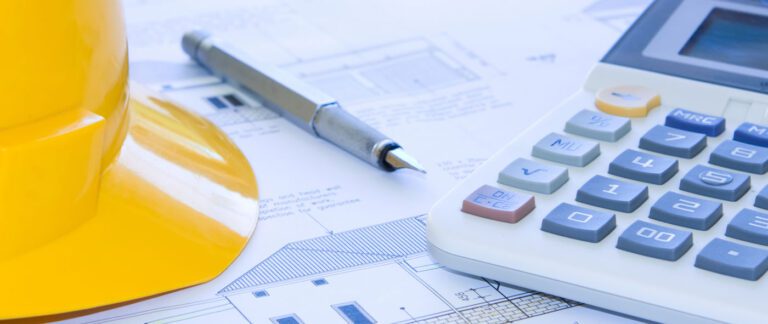
Effective Cost Management Strategies in Construction Projects
Effective cost management is pivotal for the success of any project. It involves the meticulous planning, estimating, budgeting, and controlling of costs throughout the lifecycle of a construction project. For contractors and project managers in the UK, mastering cost management strategies is not just a necessity but a cornerstone for ensuring profitability and project success.
The Importance of Cost Management in Construction
The primary objective of cost management in construction is to complete a project within the allocated budget while meeting the required standards and quality. Poor cost management can lead to budget overruns, reduced profit margins, and in some cases, project failure. Effective cost management, on the other hand, ensures that resources are used efficiently, risks are mitigated, and stakeholders are satisfied.
Key Strategies for Effective Cost Management
1. Accurate Cost Estimation
The foundation of effective cost management is accurate cost estimation. This involves predicting the costs of the various aspects of a project, including materials, labour, equipment, and overheads.
- Detailed Project Scope: Clearly define the project scope to avoid scope creep.
- Up-to-Date Data: Use current market rates and historical data for more accurate estimations.
- Contingency Planning: Always include a contingency budget to cover unexpected costs.
2. Efficient Project Planning
A well-structured project plan sets the stage for effective cost control. It should align with the project’s objectives, timelines, resources, and budget.
- Realistic Scheduling: Avoid overly optimistic timelines that can lead to rushed work and increased costs.
- Resource Allocation: Plan for efficient use of resources, including manpower, materials, and equipment.
3. Implementing Cost Control Measures
Cost control involves monitoring and managing the expenses during the project to ensure they align with the budgeted costs.
- Regular Monitoring: Keep track of expenses regularly, not just at project milestones.
- Change Order Management: Have a clear process for managing changes to the project scope and costs.
4. Use of Technology
Leverage technology for better cost management. Software tools can provide real-time data, streamline processes, and improve accuracy in cost estimation and control.
- Project Management Software: Utilises tools for budget tracking, scheduling, and resource management.
- Building Information Modelling (BIM): BIM can help in visualising the project and estimating costs more accurately.
5. Effective Communication
Clear and consistent communication among all stakeholders is crucial in managing costs effectively.
- Stakeholder Engagement: Regularly update all parties involved on the project’s progress and financial status.
- Transparent Reporting: Ensure that cost reports are clear, accurate, and accessible to relevant stakeholders.
6. Skilled and Experienced Team
Having a team with the right skills and experience is essential for effective cost management.
- Training and Development: Invest in training your team in the latest cost management techniques and tools.
- Experienced Professionals: Consider hiring or consulting with experienced quantity surveyors or cost engineers.
7. Risk Management
Identify potential risks early in the project and develop strategies to mitigate them.
- Risk Assessment: Conduct thorough risk assessments during the planning phase.
- Mitigation Strategies: Develop and implement risk mitigation plans.
8. Sustainable Practices
Adopting sustainable practices can lead to long-term cost savings.
- Energy Efficiency: Use energy-efficient materials and construction methods.
- Waste Reduction: Implement practices to reduce waste and recycle materials.
9. Quality Control
Ensuring quality in construction processes can prevent costly rework and delays.
- Quality Assurance Plans: Develop and follow strict quality assurance plans.
- Regular Inspections: Conduct regular inspections and audits to ensure adherence to quality standards.
10. Supplier and Subcontractor Management
Build strong relationships with suppliers and subcontractors and manage them effectively.
- Competitive Bidding: Use competitive bidding to get the best prices.
- Reliable Partners: Work with reliable suppliers and subcontractors who deliver quality materials and services on time.
Case Study: Successful Cost Management
Consider the example of a residential construction project in Sussex. The project manager implemented rigorous cost management strategies, including detailed initial cost estimations, regular cost monitoring, and effective communication with stakeholders. By using project management software, they were able to track expenses in real-time and adjust plans as needed. The project was completed on time and within budget, leading to high client satisfaction and a profitable outcome.
Conclusion
Effective cost management is a multi-faceted and dynamic process that requires attention to detail, strategic planning, and proactive management. By employing these strategies, construction professionals in the UK can control costs effectively, leading to successful project outcomes. Remember, cost management is not a one-time task but a continuous process that needs to be integrated into every phase of the construction project. By prioritising cost man agement, contractors and project managers can ensure the financial health and success of their
projects, ultimately contributing to the overall growth and sustainability of their businesses.
Continuous Learning and Adaptation
The construction industry is continually evolving, with new materials, methods, and regulations constantly emerging. Staying informed and adaptable is crucial.
- Stay Updated: Keep abreast of industry trends and regulatory changes that might affect project costs.
- Adaptation: Be prepared to adapt your strategies and processes as the project progresses and as new information comes to light.
Collaboration and Teamwork
Effective cost management is not the responsibility of a single individual but a team effort. Collaboration between different departments and teams is key.
- Interdepartmental Collaboration: Encourage collaboration between the design, procurement, and construction teams.
- Teamwork: Foster a culture where team members are encouraged to share ideas and solutions for cost-saving and efficiency.
Post-Project Analysis
After the completion of a project, conducting a post-project analysis or review is beneficial.
- Lessons Learned: Identify what worked well and what didn’t in terms of cost management.
- Continuous Improvement: Use this information to refine your cost management strategies for future projects.
Legal and Ethical Considerations
Adhering to legal and ethical standards is essential in cost management.
- Compliance: Ensure that all cost management activities comply with the relevant laws and industry standards.
- Ethical Practices: Maintain transparency and honesty in all financial dealings.
The Role of a Quantity Surveyor
In many construction projects, a quantity surveyor plays a crucial role in cost management. They are experts in construction costs and contracts and can provide valuable insights and guidance.
- Expert Analysis: A quantity surveyor can provide detailed cost analysis and forecasting.
- Contract Management: They can assist in drafting and managing contracts to ensure fair and clear financial agreements.
Embracing Innovation
Innovation in construction technologies and practices can lead to significant cost savings.
- Innovative Solutions: Explore new construction methods and materials that offer cost-efficiency.
- Technology Adoption: Embrace new technologies such as drones for site surveys or advanced software for project management.
Final Thoughts
Effective cost management in construction projects is a comprehensive and ongoing process. It demands attention to detail, strategic planning, and proactive monitoring and control of expenses. By integrating these strategies into every stage of a project, from planning to execution and review, contractors and project managers can ensure that projects are completed within budget, meeting or exceeding quality expectations.
Remember, cost management is not just about cutting costs; it’s about optimising resources, maximising value, managing risks, and achieving the desired outcomes in the most efficient way possible. By prioritising effective cost management, professionals in the construction industry can drive their projects towards success, ensuring long-term sustainability and profitability in an ever-competitive market.
Get In Touch
We are freelance quantity surveyors, assisting homeowners, property developers, and contractors in saving time, conserving funds, and alleviating stress by offering preliminary cost consultancy advice during the concept design phase and delivering a comprehensive breakdown of labour, plant, and materials costs at a more advanced design stage.
How Do Quantity Surveyors Enhance Project Value in UK Construction?
The value a Quantity Surveyor (QS) brings to a project is often underappreciated. However, their role is integral to the…
Essential Guide to Construction Contracts: Best Practices for UK Contractors
Understanding and managing contracts is crucial for the success of any project. For contractors in the UK, navigating through the…


